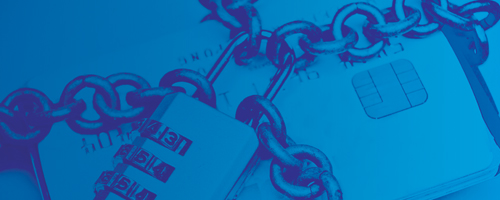All In A Day’s Work
Credit card theft is and has been on the rise. It is one of the most widespread types of fraud. Common methods for credit card theft include phishing, card cloning and no-card fraud (copying credit card numbers to make online purchases). Anyone that has had a credit card stolen knows the frustration and time involved to get the damage repaired.
One of the reasons credit card theft is growing is the use of on-line purchases – either through computers, smart phones, or tablets. Every year, law enforcement agencies and individual victims report thousands of identity theft fraud cases to the U.S. Federal Trade Commission (FTC). It then lists them in its annual Consumer Sentinel Network (CSN) Data Book. The CSN report shows that the total number of credit card fraud complaints for the general population actually increased 18 percent from 49,026 in 2013 to 57,880 in 2014.(“Identity Theft Complaints,” Robert E. Holtfreter, Ph.D., CRE, CICA, CBA, Fraud Magazine, July/August 2015.)
After a recent episode involving credit card theft, we learned there are people that get up in the morning (just like you and I), go to work and do nothing all day but attempt to duplicate valid credit card numbers. This particular theft occurred with a cash advance of under $500. After two weeks with no rejection, the fraudsters went in for the kill and purchased airline miles and several advances of approximately $500 each from money machines at a racetrack. Fortunately, due to an alert set up with the credit card company, we were notified that the amounts charged exceeded the threshold we set for notification.
Then the process began – the first call was made to the credit card company who cancelled the credit card and agreed theft was involved. After a few weeks when the airline charge still appeared on the statement, a second call to the credit card company was prompted only to find out it was no longer classified fraud but a disputed charge. We were told we would have to discuss the case with the dispute department. A three-way conference call (credit card dispute department, the airline, and myself) was established and the airline agreed this was a case of fraud and they would handle it. Several more weeks with no resolve and another call to the airline set the wheels in motion and the charge was reversed between the airline and the credit card company. This still did not remove the charge from our card. A call to the credit card fraud department and a repeat of the entire incident would resolve the nightmare and the charge was finally reversed. Two months and numerous hours spent on phone calls for just one credit card. We were told we should be glad it was just credit card and not identity theft. That’s an article for another day.
Be vigilant – protect your cards, check activity weekly if not daily and set alerts to notify yourself of suspicious activity. If you are worried that your personal information – credit card or otherwise – may have been compromised, then you should contact the local law enforcement agency and file a report. Also, contact one of the major credit bureaus (Equifax, TransUnion and Experian) and request an initial 90-day fraud alert for your credit report files. The alert grants you a free credit report from each bureau and instructs potential creditors to contact you directly before opening any new lines of credit in your name, decreasing the risk of unauthorized credit activity. Then, if after reviewing your credit reports you discover fraudulent activity, consider taking the alert a step further and freeze your credit while you dispute the illegitimacies. Remember – for fraudsters, it’s just another day’s work!























